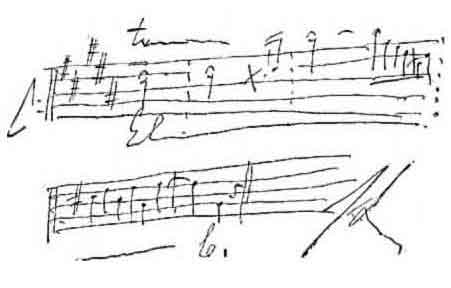Black. White. Alaska. Russia.
Black is not the opposite of white. Think about it. Think about how we learn things.Think about the developmental level you had attained when you first learned about the colors black and white.

You, like the rest of us, were told that they are opposites. When you moved into upper grades, you were given additional and more astute observations regarding black and white. One is a lack of color. One is all colors combined. That is what you were told. But you probably still saw them as opposites. Indulge me and list, mentally or otherwise, the traits of the color black and the color white. If you consider the two on the spectrum, you could probably name more about them that is the same than different. When you think about it, the opposite of both white and black is probably green.
Looking at a map in a book, a child may think that the farthest thing from Russia is Alaska. One is all the way to the left of the page and the other is all the way to the right. We know that they are practically neighbors, don’t we? Some of us, if we’ve never been on long flights might think that the fastest way to China from Philadelphia is to travel East. Until we book that flight and see that we have a stop in California.
Why do I mention these small, obvious, and arguably silly things? Because we need to change the way that we think. We need to listen to what people say and take it all in. Remember it. Stew on it. Ruminate. Chew. And then examine how much of what we heard was colored by the experience of the speaker and by our own experience. Did we agree? Why? Was it because the speaker connected to us and their pacing, verbiage, paralanguage, and/or accent resonated with something within us? We have to separate, in our minds, liking someone and agreeing with someone.
Speakers are compelling. That’s how they make their living. Journalists and authors earn their bones by connecting through the written word. As consumers of media, even when the media is a live discussion, we must be responsible. Even in our own classrooms, we have to be careful that we are responsible authorities and not lords of our domains: doling out information and judging resources unfairly.
We must also be mature. Why is a terrible question. It’s childish and uninformed. It’s loaded and judgmental. It’s a bratty query. You probably really want to know: May I…? Are we able to…? Have you considered…? Is there a reason…? What are some of the questions that we need to ask of our guides and our selves? Are they static questions that have become mantras? Are they dynamic? From where do they come? What are we missing?
Let’s all take some time to revisit the reasons that we do what we do. Reflect on the things that we hold dear, our personal myths and histories. Do these things serve as a foundation for our approaches or do the create blockades to our own development and the development of our students? What are our prejudices? How are they effecting us? Does the unchecked acceptance of a message place a glass ceiling on our own goals?
I look forward to your comments, criticisms, and confessions. Feel free to post anonymously. We need to purge, don’t we? I know I do.
Let’s challenge each other to change the way that we think.

